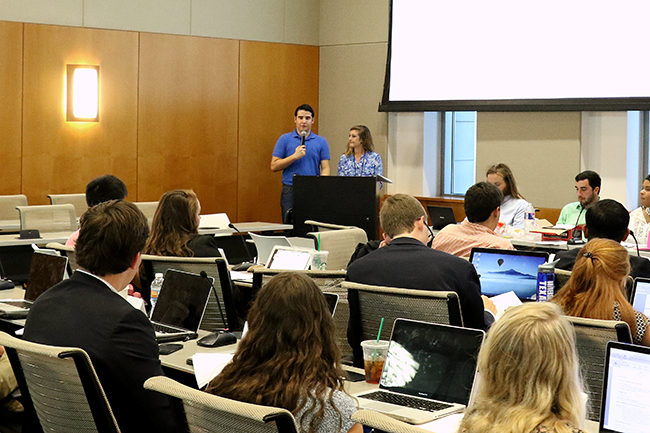Student Government and the Senate of College Councils introduced legislation for judicial review on Tuesday supporting a 30-day grace period for clearing financial bars.
The new resolution requests for the Office of the Registrar to give students 30 days to pay off any outstanding fees and debts that would bar them from registering. This resolution, which would also alert students via email after missing the initial deadline, would give students more time to collect the necessary funds, according to Kallen Dimitroff, SG University-wide representative and co-author of the resolution.
“I’m sure many of us have been in this situation where you go to register for classes and boom, surprise, you have a financial bar, and you can no longer register,” Dimitroff said. “With this resolution, when you go to register, rather than saying ‘you have a financial bar; you can’t register,’ it’ll say, ‘hey, you have a financial bar, but you have 30 days to pay that fine.”
Prior to spring 2015 registration, 6,768 students had financial bars with a total amount of $2,429,094 owed to UT, according to the resolution. Financial bars can be given to students for debt as large as tuition and as small as ID fees, and the 30-day grace period seemed like the best solution to the problem, said a co-writer of the resolution, Sergio Cavazos, policy director in the Senate of College Councils.
“We think this is a very proactive solution to the issue, and it gives [assistance to] students — especially upper-division students — that need specific courses and that may not be able to achieve a four year graduation rate if they don’t get these classes,” Cavazos said. “With large amounts of money especially, 30 days can really go a long way for a student who is trying to pay off their debt.”
According to the resolution, 50 percent of graduating students borrowed money in order to cover University debt during the 2013 academic school year.
Sara Arciniega, a psychology and public relations sophomore, said she supports the extension.
“My financial aid didn’t get here on time, so I had to take out a loan to pay for school, and then my financial aid got in the next day after, so I had to pay off my loan with the financial aid,” Arciniega said. “If I had 30 days, I would have had more time to get that financial aid, and I wouldn’t have had to take out that loan.”
SG Vice President Rohit Mandalapu, who was involved in the development of the resolution, said if it passes next week, it has the potential to be enacted by next fall.
“This grace period allows you to pay off your debts without having to deal with getting kicked out of your classes as an unnecessary punishment,” Mandalapu said. “We are hoping this will go through and be as quick as possible.”
Correction: The legislation concerning a financial bar grace period was a joint resolution filed by members of Student Government and the Senate of College Councils.





















